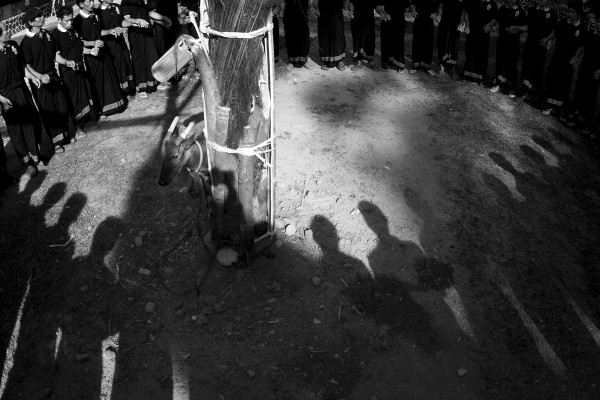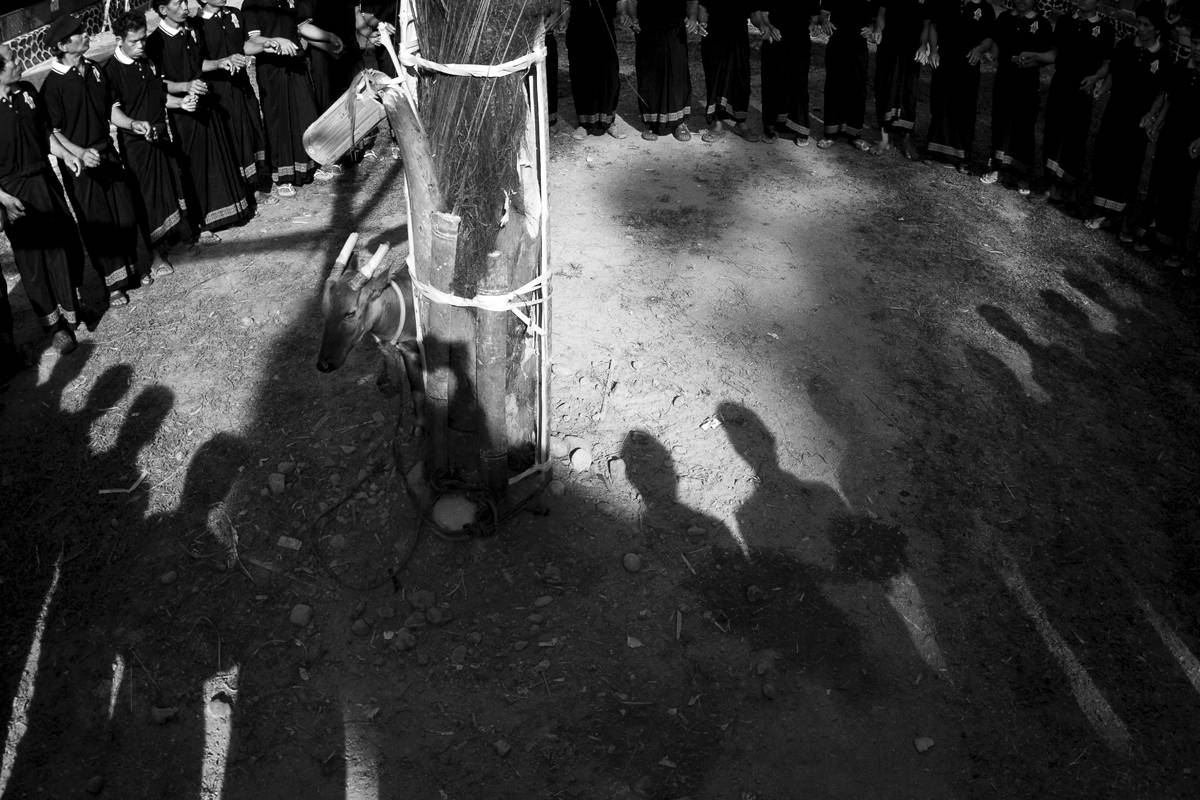Rollover images for slideshow controls
Feast For The Dead Body
Torajan people have immensely strong cognizance that life on earth is a transient affair. They realize that impossible as it may seem to restrain the sun setting in the west, delaying death is more or less the same.
For Torajans who cling to Aluk To Dolo (animism), ancestral custom and belief, funeral ceremony Rambu Solo’ is such a momentous and sacred event. No wonder if they’re willing to wanton away fantastic sums of money—from hundreds of millions to billions—for days-lasting ritual with dozens of carabaos and hundreds of pigs as the offerings. Specific quantity of animal sacrifices regulated in Aluk may vary due to the family social status. Only noble families are allowed to hold grand and majestic funeral rites. Torajan people show their grief of losing the loved ones through Pa’suling music, ballads, lamentations, poems, mournings, and songs, yet they normally won’t do these things in funeral of children, penniless ones, and lower-rank people. In this society, Rambu Solo’ is much more than a mere tradition; it’s the way of offsprings to pay tribute and show their love to departed ones. The merrier the feast, the higher prestige the family will gain in the eyes of community.
The ethnic group indigenous to the highlands of South Sulawesi presumes that spirit of deceased person needs carabao to guide him or her in journey to Puya, the spirit realm. The more carabaos and pigs are sacrificed, the faster the spirit will make it there. Carabao offerings are also believed having noteworthy role in opening the gate of Puya. Moreover, they’ll later be supplies for spirit in his or her “new world”. Without proper and perfect Aluk-ordered ceremony, the spirit will go astray.
One distinctive feature found in Torajan funeral custom is that the corpse won’t get buried below ground. Closely related to the community’s modus vivendi, they believe their holy ascendants came from heaven and earth. Hence, it’s inappropriate if those who died are buried under the ground. Torajan people deem it might ravage the sanctity of earth, that in turn, impact on the soil fertility. They’ll put cadaver in Patane (Torajan tombs), such as in cave, in the pit of huge rock, on steep cliff, or at particular set built for dead people. The one and the only goal is to make sure they won’t be buried underground. That way, it’ll keep the body safe from scavenging-wild-animals.
Rambu Solo’ and all other unique traditions of Toraja tribe portray a never-ending journey of an ethnic identity that’s struggling to survive. Although the lion’s share of Torajan nowadays embrace monotheism, Aluk stands strong to defend itself and live on under the shadows of modernity and monotheism.
Photographs & Text: Adzwari Ridzki | Website: Kulaky.wordpress.com

Share


Comments 1
Well edited. I feel the depthness.
Glad to see your story appear here Ridzki.